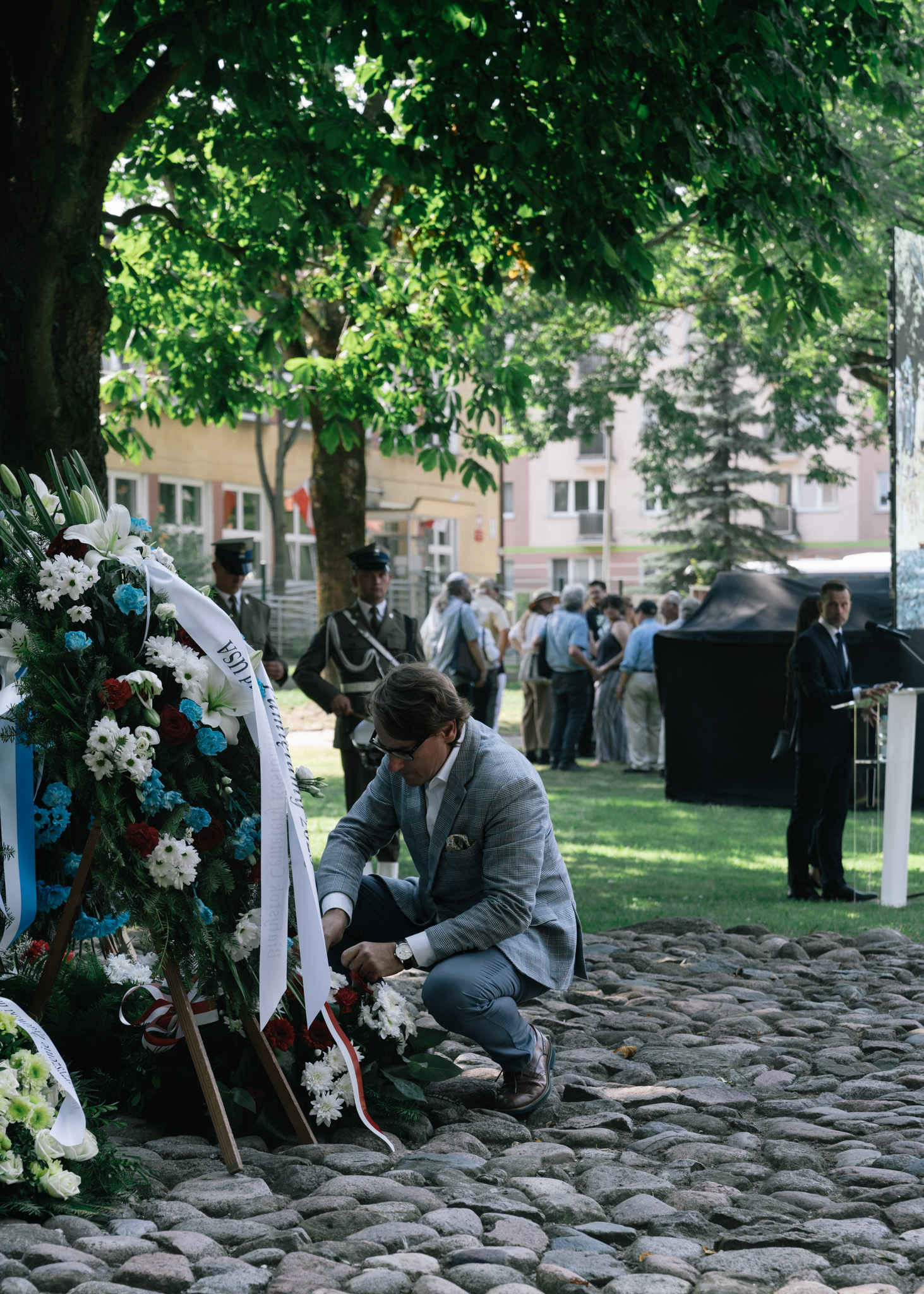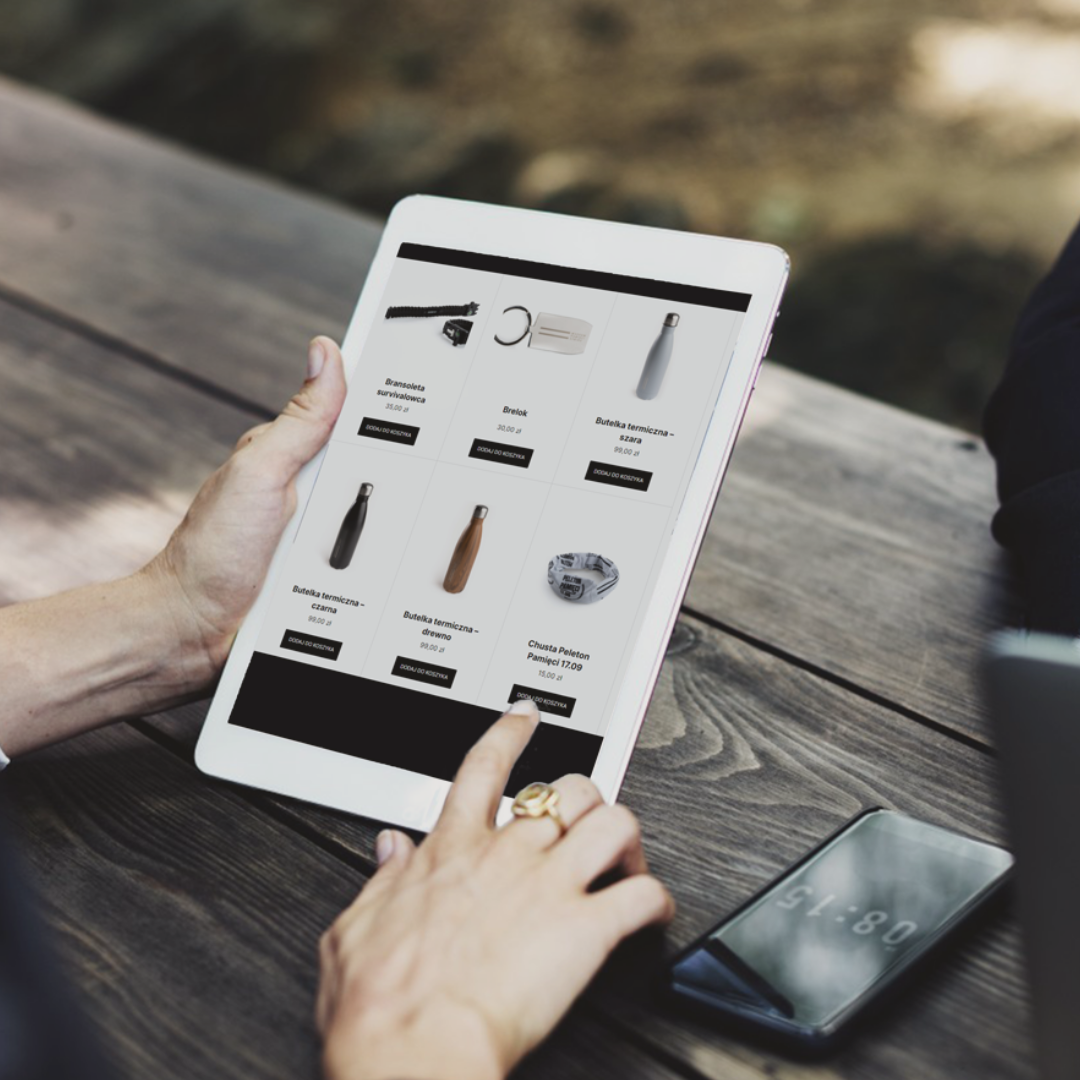The place where the seat of the Museum is located remembers the drama of the inhabitants of the ghetto liquidated by the Nazis. It was here, on the siding of the Poleski Railway Station, that in August 1943, the Germans locked up Jewish citizens of Bialystok in wagons to be transported to the extermination camps in Auschwitz and Treblinka. A commemorative stelae placed in front of the entrance to the Sybir Memorial Museum reminds us of this.
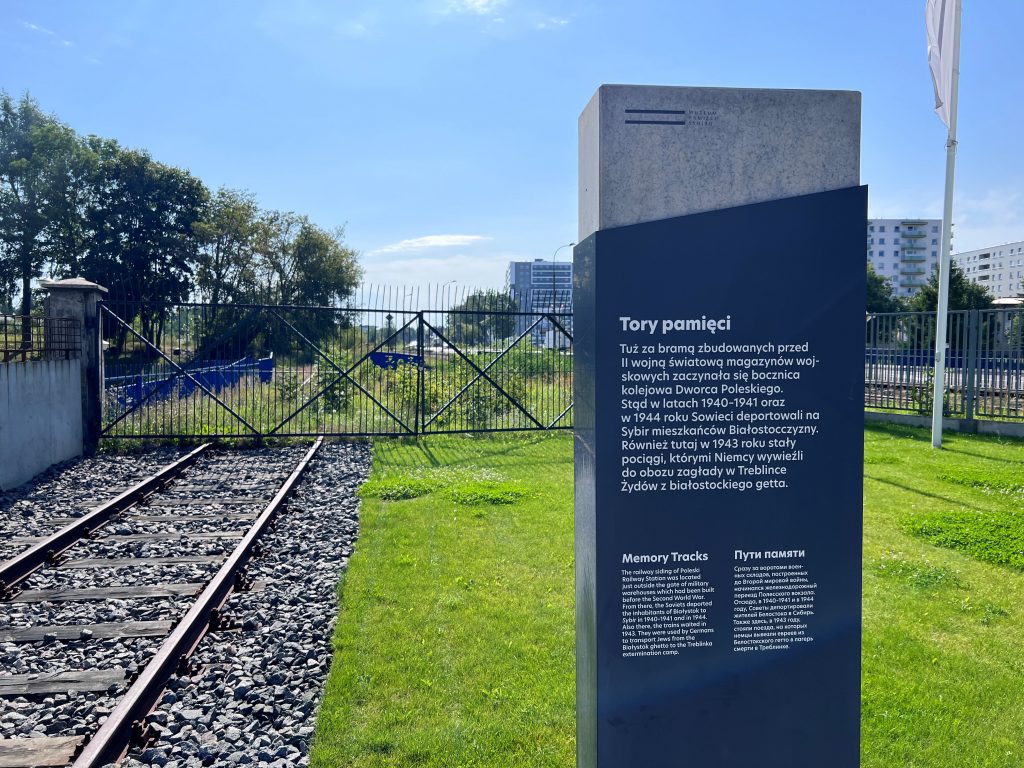
The main celebrations of the 80th anniversary of the ghetto uprising took place at noon on Mordechai Tenenbaum Square. In his speech, the Mayor of Białystok, Tadeusz Truskolaski, recalled the contribution of Jewish residents to the development of the city:
— In the first half of the 18th century, the founder of Białystok, Hetman Jan Klemens Branicki, transformed the small settlement into a vibrant, magnificent residence. The Jewish community was already functioning here. The flourishing of Białystok in the next century would not have been possible without her participation — without the work of Jewish industrialists, people of culture and education. Eighty years ago this part of our city ceased to exist. Our neighbors are gone forever. Our city has been robbed of that inalienable part of its culture and its character… — he said.
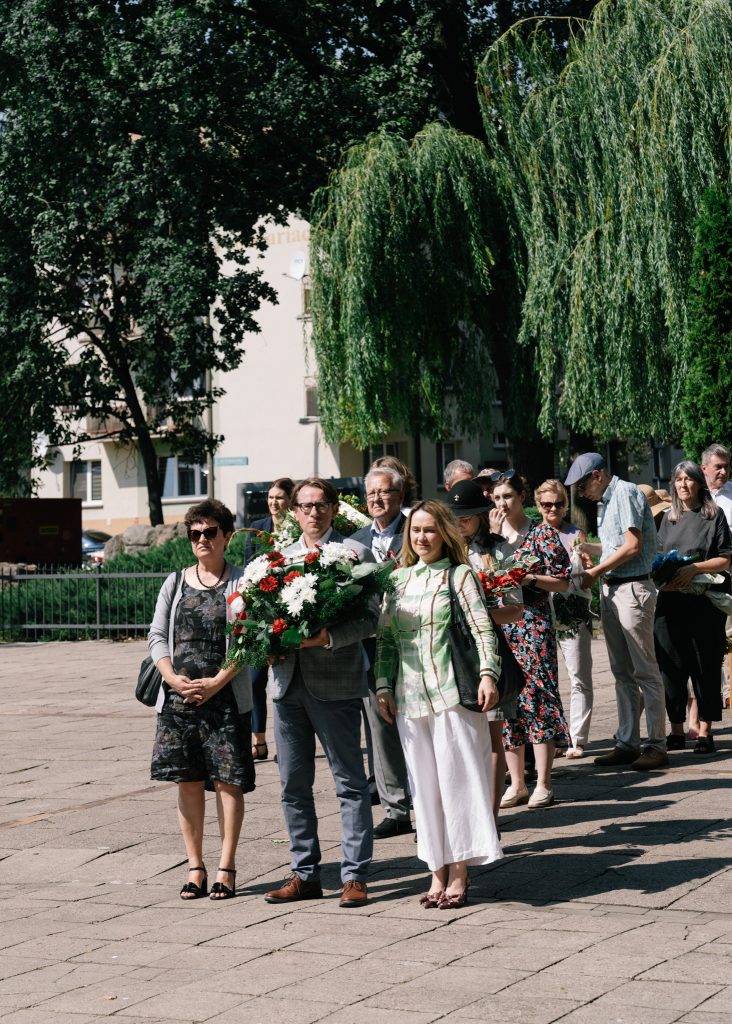
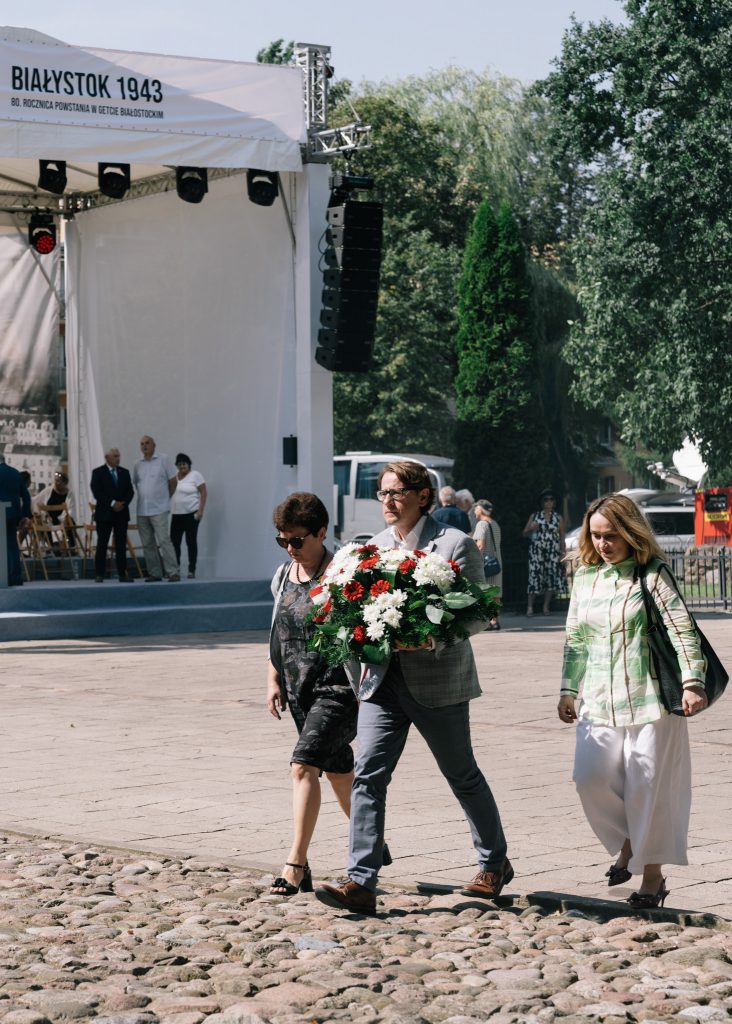
Among the representatives of the authorities, institutions and organizations laying flowers at the monument, there was also the director of the Sybir Memorial Museum, Professor Wojciech Śleszyński with the representatives of the employees.
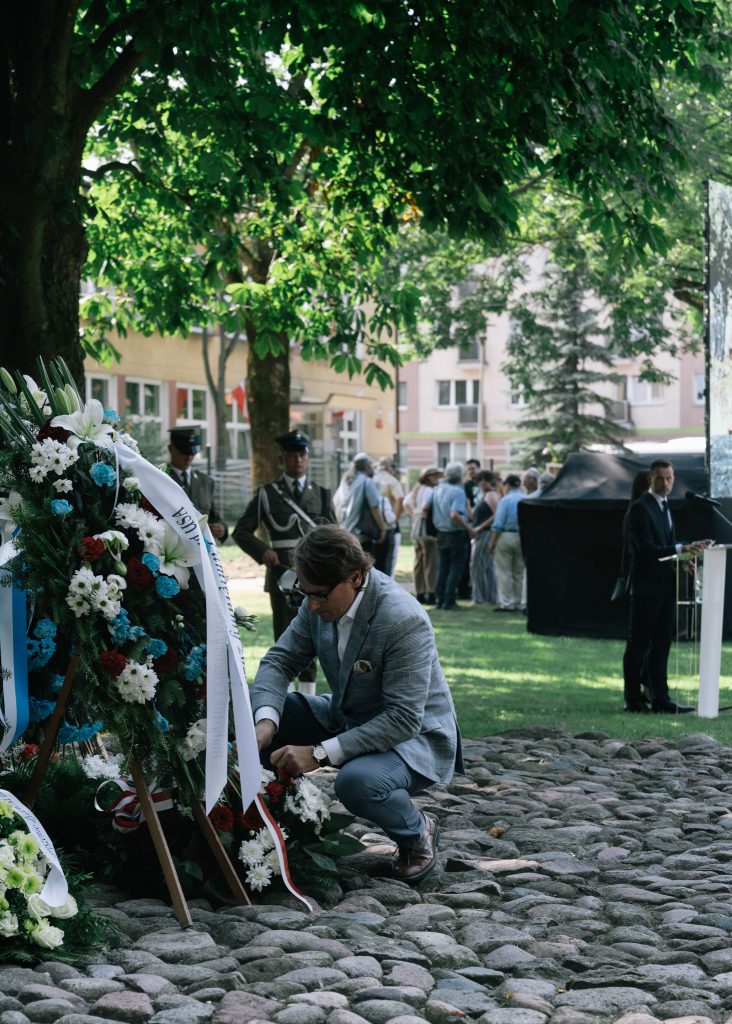
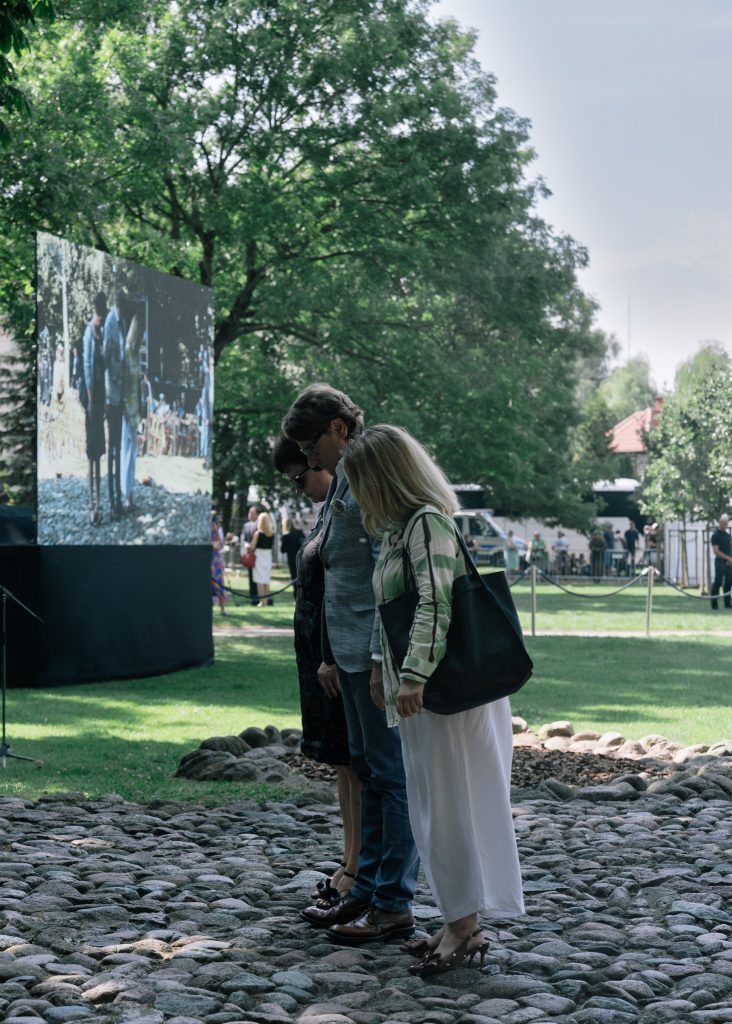
At 5:30 p.m., a debate was held in the seat of our museum about Samuel Pisar’s book “Of Blood and Hope”, just published in Polish.
Samuel Pisar was born in Białystok and was one of the few local Jews, who survived the Holocaust. He went through the Bialystok ghetto and several concentration camps, including Majdanek, Auschwitz, Sachsenhausen and Dachau. He was the only one from his Bialystok family to survive.
After the war, he was educated in Australia, France and the United States, where he eventually settled. He became a respected lawyer and founded an international law firm. He has represented well-known actors and businessmen, e.g. Steve Jobs.
He is also remembered as President Kennedy’s political and economic adviser and as an activist for dialogue with Russia and Eastern Europe. He worked for the United Nations and Yad Vashem.
Privately, he was the husband of Judith and the stepfather of her son, Antony Blinken, who today serves as the secretary of state, i.e. the head of American diplomacy in the administration of Joe Biden.
The debate devoted to Samuel Pisar and his book at the Sybir Memorial Museum was attended by Leah Pisar-Haas, Samuel’s daughter, as well as the United States Ambassador to Poland, Mark Brzezinski, and the former Ambassador of the Republic of Poland to the United States, Ryszard Sznepf. The mayor of Białystok, Tadeusz Truskolaski and editor Marian Turski also spoke.
The conversation was led by Piotr Marciniak, a journalist of the TVN station, which broadcast the meeting.
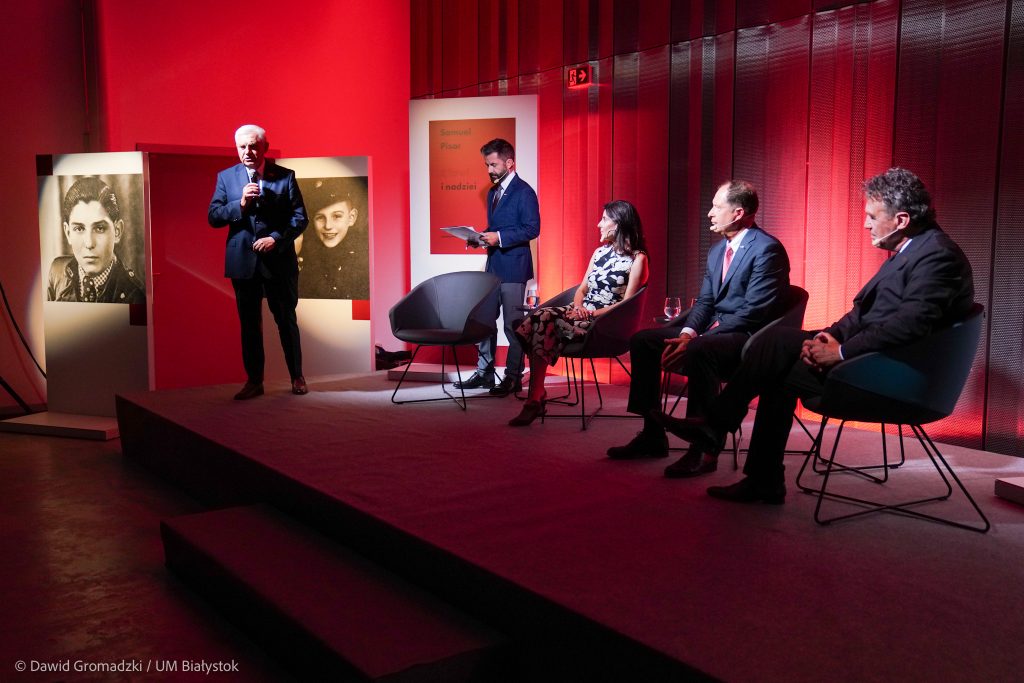
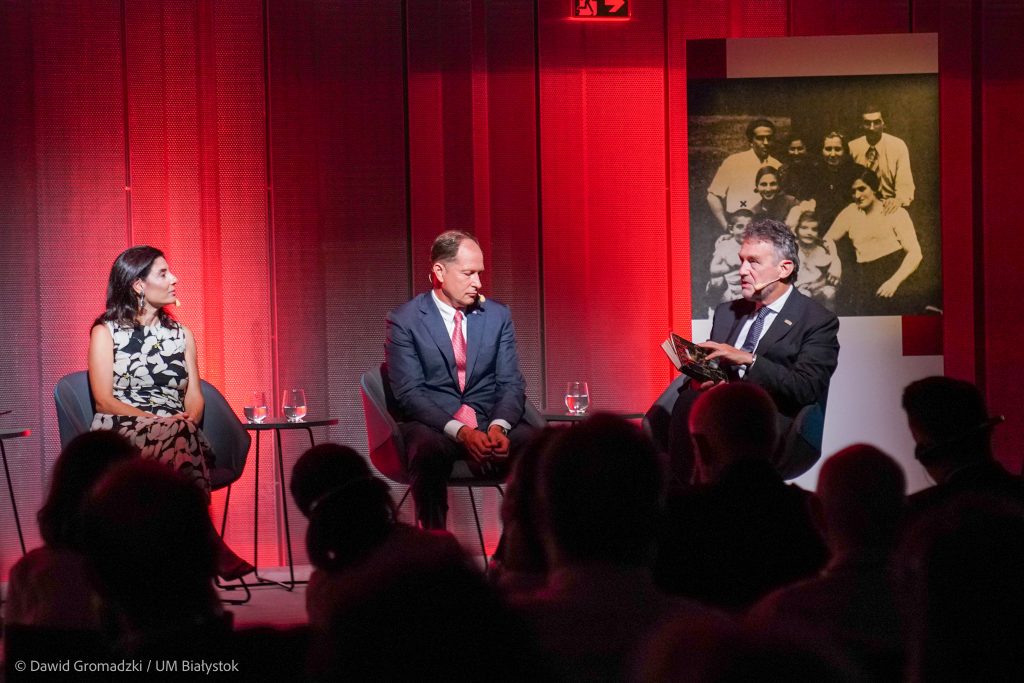
Marian Turski drew attention to the values mentioned in the book “From Blood and Hope”:
— If I were the keynote speaker discussing Pisar’s book, I would focus on four things. The first is loneliness, how to avoid it, how to live, and this is what Pisar uses as a pact with Ben to survive. The will to survive. The second problem — what surprises Samuel is his great sensitivity to the weak, the poorer. Third, is it possible to avoid hatred, not to hate? I will limit myself to the fourth: as a survivor and as a historian, who deals with this period. I am not exaggerating when I say that I have read at least a few hundred, maybe even a thousand books from the times of the Shoah. And of course, each diary is like life — slightly different. What do I find special about Pisar? Have you ever wondered what suffering is? When did they beat me? Yes. When I was covered with lice? Yes. When I was freezing in rags at -20 degrees? Yes. When was I starving? Yes. When they treated me like a cockroach to be trampled? Yes, but even so, they themselves were anti-human to me. So it wasn’t that severe. The greatest suffering from the study of Pisar is the suffering of goodbyes.
When asked about Pisar’s reasons for writing this book, Samuel’s daughter Leah Pisar —Haas replied: “People who didn’t know his past had no idea what hell he had been through before. His story leads from a happy childhood, through terrible memories, to survival, which was a miracle. Someone had to live to tell it. It was not just about physical survival, but emotional, mental survival — being able to live, have a family, laugh. Humor was the most important element of family life. If you are capable of this, then you have truly survived.
The moderator of the debate pointed out that Samuel Pisar’s Polish origin was connected with another important figure in American politics, Zbigniew Brzeziński, the father of today’s US ambassador to Poland: — They knew each other, both helped in the dialogue with Soviet Russia, both did not want a nuclear war and they believed in the necessity of dialogue, but they did not agree on all issues. Years later, who do you think was right — Pisar or Brzeziński? — asked Piotr Marciniak.
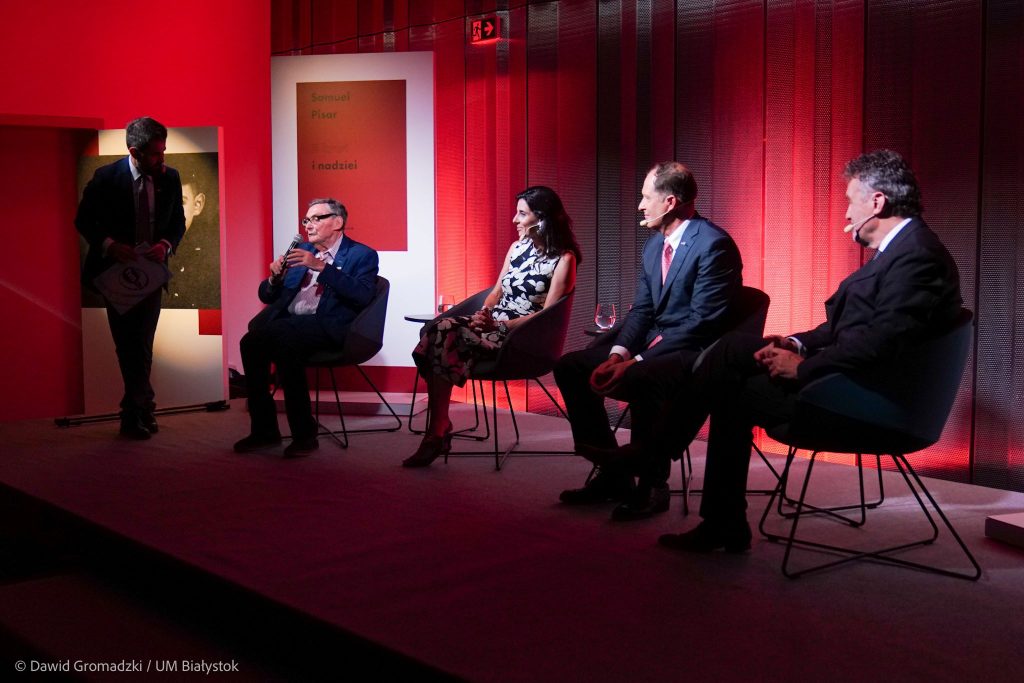
The US ambassador replied: — I see that both felt the spirit of teaching and educating people. Both had an open mind to serve others, and they saw America’s potential to create a better world. The writer saw opportunities and tools as a lawyer. Both were open to bringing peace, to giving diplomacy a chance. That was the point when discussing peace and demarcation, but both were clear about Soviet intentions. We are in 2023, we see what Russia has done…
Leah Pisar-Haas added: “This is not a binary system, there will be no such confrontation here. My father taught me to listen. If you listen to others, then even if you disagree with them, you don’t waste time, because it helps you find a solution. It is a matter of how we combine knowledge and communicate with others. The point is that humanity is very complicated, and that’s what makes it great. If we want to move forward, we need to talk. The adviser’s function is to collect different opinions so that the president can make a good decision. And a diplomat takes information from various sources. And I do it too, I don’t expect people to agree with me, I want to know their different opinions.
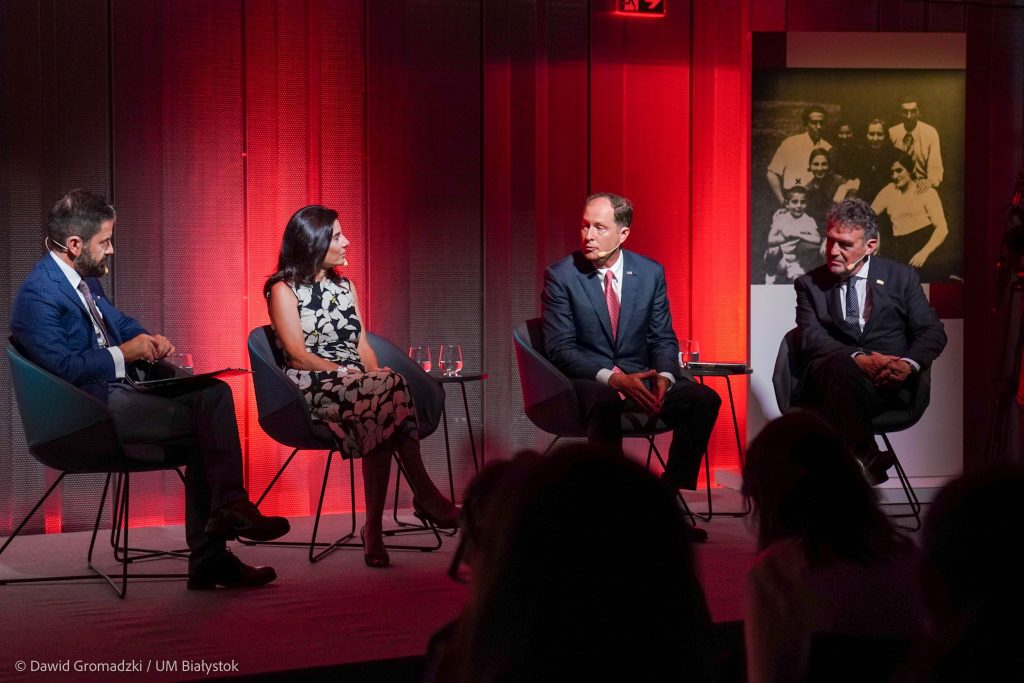
Mark Brzezinski emphasized: — Today in Poland I see what was the core of Pisar’s message. In the face of the war in the east, Poles reached a higher moral level and helped the Ukrainians. Samuel Pisar would be proud of this, such a reaction, a mobilization to help humanity. And it happened because Samuel Pisar or Marian Turski shared their stories. This is the strength of this book, this blessing they gave to the world, America, Poland.
The debate on the testimony and moral testament of Samuel Pisar is not the only activity in which the Sybir Memorial Museum joined in the year of the 80th anniversary of the Białystok Ghetto Uprising.
In June, we organized a program of workshops for young people in Białystok schools on the life and extermination of the Jewish community of Białystok. In turn, in November, the Sybir Memorial Museum will host a scientific conference on Białystok Jews. We will inform you about the details of this event in the coming months.




